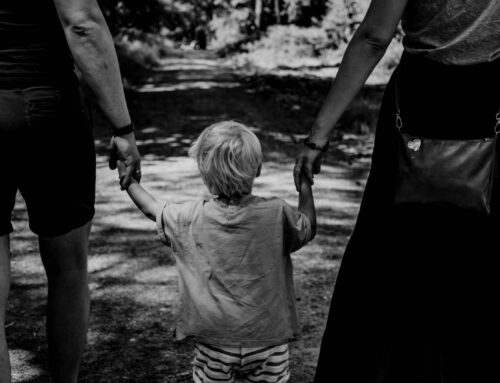It turns out that there is an increase in divorce filings in January. This likely occurs as many parents stay together through the holiday season “for the children” and once the holidays are over, decide it’s time to end the marriage. That makes January a good month to focus on the needs of children during and after divorce.
One of parents’ top concerns is how the divorce will affect their children. Unfortunately, one of main conflicts parents can have during their divorce, is about the children, specifically parenting time with the children. With emotions running so high and divorce being one of the most stressful life events a person can experience, how can parents keep their focus on the needs of their children? A child-centered divorce is when the parents and their professional advocates put the needs of their children at the center of their decision-making during their divorce.
One of the first steps parents can take to be child-centered is to consider a non-adversarial divorce process for how they get divorced. Mediation and collaborative divorce are two non-adversarial process options. Both of these options occur outside of the courts. Both of these processes focus on parents coming to agreements that best suit their children and family with the help of professionals. Studies suggest that parents that come to their own agreements about their divorce, their children, and their family are less likely to have later disputes about their settlement. When parents maintain control of their decision-making regarding their children, they create more durable and sustainable agreements than when they go to court and have a judge make the decisions. Parents working together to create agreements about their children is good for children and therefore, child-centered.
Mediation may involve just one attorney or other trained mediator, or may involve co-mediation where an attorney mediator and a mental health or financial mediator work together. A mental health mediator can help parents stay focused on the needs of their children as they discuss and agree upon a parenting plan. Collaborative Divorce includes attorneys and other allied professionals trained in collaborative divorce and the use of alternative dispute conflict resolution techniques to help people come to agreements. Each parent has their own attorney and the team may also choose to have a financial specialist, a child specialist, and/or a mental health specialist be part of the team helping them divorce in a peaceful way. A mental health child specialist can talk with the children and represent their voices and needs to the team. A mental health specialist can help parents manage their strong feelings so that they are able to stay focused on their highest values and their children’s needs. A mental health specialist can also help parents begin to learn new ways of interacting as effective co-parents, with an ability to communicate, collaborate, and keep conflict low on behalf of their children. Picking a divorce process that is non-adversarial and helps parents make agreements is child-centered.
Parents coordinating and sitting down to tell their children about the divorce is another way parents can start the divorce process in a child-centered way. How parents handle this important conversation with their children sets a tone for how parents intend to handle their divorce and their co-parenting. Focusing the brief talk on how children are feeling and what they need to know, including that they are loved and will supported during the transition, rather than on acrimony or blame, is child-centered.
Research suggests that parental conflict negatively affects child adjustment more than divorce itself. Keeping conflict low is one of the best things parents can do to be child-centered. Parents getting support, whether psychotherapy or coaching, to help them learn ways to manage their strong feelings, grieve, and communicate effectively can help parents stay focused on the needs of their children and parent more effectively. When parents separate their own feelings and experiences from their children and realize that children need to feel free to love both of their parents, they are practicing being child-centered. When parents focus more on loving their children than on animosity toward their co-parent, they choose to be child-centered.
These are three important things parents can do to be child-centered in their divorce. Since January is child-centered divorce month, it seemed a great time to describe steps parents can take to keep their children at the center of their hearts and minds and out of the middle of loyalty conflicts during their divorce.
For more information on mediation go to https://ormediation.org/
For more information on collaborative divorce go to https://pdxcollaborativedivorce.com/ and https://www.collaborativepractice.com/
For how to tell children about your divorce see The Talk
For ideas to co-parent with less conflict check out The Quick Guide to Co-Parenting After Divorce






